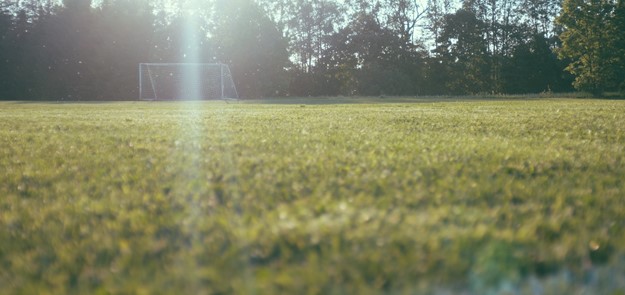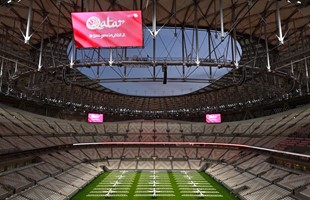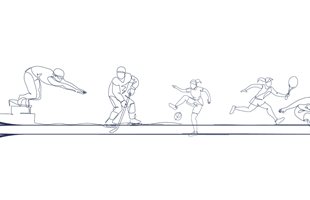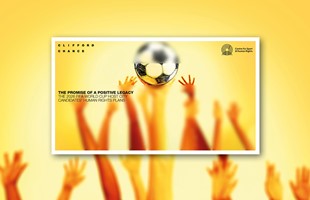
CSHR Collaborates with Asser Institute On New Training Course for Sport And Human Rights
There is no doubt that the sport and human rights movement is here to stay. This can be seen in the growing number of sport-related human rights abuses being uncovered, as well as more sports bodies at all levels starting to embed human rights due diligence into their policies and practices. Pressure continues to build from civil society actors on powerful actors in sport to reform and engage constructively on advancing respect for human rights.
These trends require all those working in this fast moving field, or aspiring to do so, to have the knowledge and capacity needed to contribute towards a world of sport that fully respects human rights. Advancing the field through education was the goal of the recent one-week course on ‘The Governance of Sport and Human Rights’. Hosted by the T.M.C. Asser Institute in The Hague in collaboration with the Centre for Sport and Human Rights (CSHR), the course brought together an international group of sport practitioners and students, eager to learn more about the links between sport and human rights.
Each day focused on a different theme beginning with a historical introduction by Stephen Cockburn on Amnesty International’s first campaigns in relation to sports and sport events, and an overview of athlete protests since the early years of the Olympic Movement shared by Jörg Krieger from Aarhus University. William Rook from CSHR presented more recent developments in the field, including the establishment of the Centre.
William Rook from @SportandRights is up next, talking about the #sport and #humanrights movement and how it developed into what it is now 👇 pic.twitter.com/4gSYO0fKF1
— Daniela Heerdt (@DanielaHeerdt) September 5, 2022
Day two addressed governance, looking at how international and national sports bodies have addressed human rights challenges in recent years, with contributions from Rachel Davis from Shift, Gijs de Jong from the KNVB (the Dutch Football Association), David Grevemberg and Alison Biscoe from CSHR and Andreas Graf from FIFA.
A range of other speakers presented throughout the week, including Natasha da Silva reflecting on the Australian and New Zealand Human Rights Commissions’ work to assess human rights risks involving the FIFA Women’s World Cup in 2023 and a number of speakers focusing on the FIFA World Cup Qatar 2022, including Mahmoud Qutub from the Supreme Committee for Delivery and Legacy, Ambet Yuson representing Building and Wood Workers’ International, Mustafa Qadri from Equidem Research and Andreas Graf presenting FIFA’s perspective.
FIFPRO representatives, among them Nienke van Gerven, Sarah Gregorious, Alex Culvin and Alexandra Gómez Bruinewood, shared insights into FIFPRO’s work and how it directly helps professional football players to claim and enforce their human rights. Andrea Florence from the Sport and Rights Alliance led a session on the rights of child athletes.
The final day looked at the concept of remedy, what it means in the context of sport-related human rights abuses, which avenues and mechanisms are available, and what the main challenges are in ensuring effective remedies for people who experience abuses linked to sport. Antoine Duval from the Asser Institute discussed the role of the Court of Arbitration for Sport and Patrick Bracher from Norton Rose Fulbright looked specifically at the Caster Semenya case and how it went from the CAS to the Swiss Federal Tribunal and now to the European Court of Human Rights. Florian Yelin, from World Players, presented their alternative dispute resolution mechanism for sport and human rights matters developed together with the Permanent Court of Arbitration in The Hague.
We were fortunate to have all these speakers with us for what were inspiring and promising sessions. We were encouraged by the diverse participants and their active engagement throughout the week. The topic of sport and human rights is clearly gaining in relevance and programmes like this can help to ensure that meaningful change continues. Training and education opportunities are critical in ongoing efforts to spread knowledge on how to respond to and address human rights harms within the world of sport.
This groundbreaking first edition of our course helped demonstrate the importance of shared responsibility between all actors within the sport ecosystem. The Centre will continue to support these and other initiatives, in line with our work to build capacities and share knowledge.
And that's a wrap! A fantastic week exchanging knowledge and discussing the challenges and opportunities around the governance of #Sport and #HumanRights https://t.co/GxDLxjbDQ4
— Centre for Sport & Human Rights (@SportandRights) September 9, 2022



